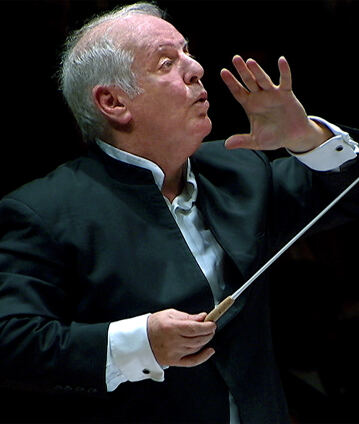Interview
Simon Halsey à propos du « Rêve de Géronte » d’Edward Elgar Daniel Barenboim dirige « Le Rêve de Géronte » d’Elgar

Alors qu’en Angleterre sa popularité rivalise avec celle du Messie de Haendel ou d’Elias de Mendelssohn, Le Rêve de Géronte d’Edward Elgar est moins connu à l’étranger où chaque représentation équivaut à une redécouverte. Les Berliner Philharmoniker et le chef d’orchestre Daniel Barenboim nous invitent ici à redécouvrir cette œuvre où la foi profonde du compositeur s’exprime à travers un langage musical individuel.
Berliner Philharmoniker
Daniel Barenboim
Anna Larsson
Ian Storey
Kwangchul Youn
Chœur de la Radio de Berlin
© 2012 Berlin Phil Media GmbH
Interviews liées au concert